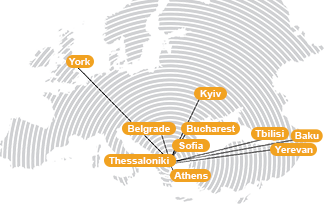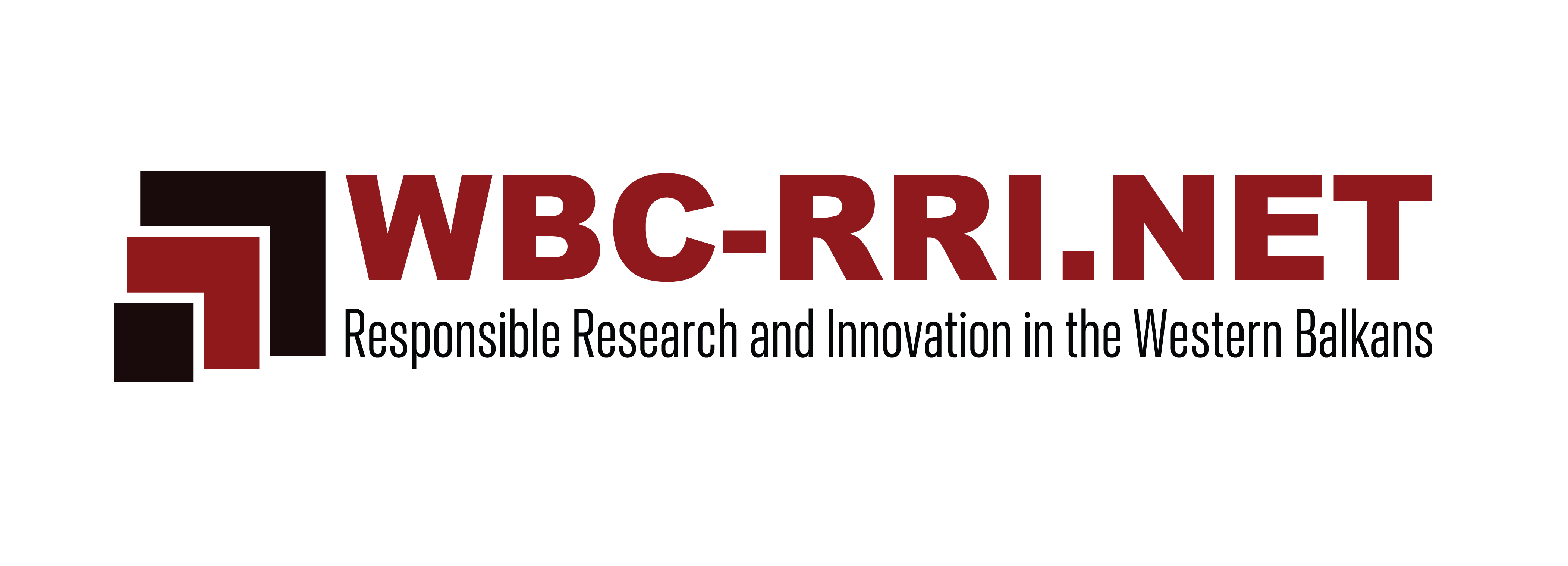The overall aim of WBC-RRI.NET is to foster the application of Responsible Research and Innovation (RRI) principles at the territorial level in Western Balkan Countries (WBCs), so as to then promote a multi-level steering R&I governance framework. The RRI principles will act as enablers to the shared learning and diffusion of R&I governance innovations at the territorial level and this in turn can lead to enhancing R&I planning, including the existent or upcoming Smart Specialisation Strategies (S3) in the WBCs. This framework will be based on a ‘smart directionality’ approach ─been indicated as beneficial to regional ecosystems─ as well as on a regional and local innovation planning, a concept to which citizens will also be brought closer through the RRI principles. R&I planning and S3 strategies will thus have the potential to be characterised by an RRI-driven open and inclusive approach, entailing a comprehensive stakeholder involvement and engagement with a focus on citizens’ participation.
The following specific objectives have been set:
- To enhance local/regional R&I ecosystems’ capacity to tackle contemporary societal challenges and territorial research priorities and address within this context citizen’s concerns/expectations from Science, Research, Innovation and Technology.
- To assist local R&I organizations to adopt RRI principles for effectively addressing the challenges that scientists and researchers face today (i.e. mistrust of science, increased competition, ethical dilemmas), pairing scientific excellence-social awareness.
- To contribute to the enhancement of Smart Specialization Strategies at WBC, by promoting a more open and inclusive approach to research and innovation policy development based on the RRI principles and on stakeholder / citizen engagement.
- To apply a ‘smart directionality’ policy approach ( combination of RRI and S3 principles) so that the advanced innovation planning will be ‘tailored’ to societal/regional challenges, enhance the responsible and ethical knowledge production and exploitation thus lead to sustainable R&I systems
- To promote a multilevel, steering R&I governance framework in the WBCs by advancing innovation policy consultation and planning at the local and regional level
Operationally, RRI activities will be performed throughout the entire course of the project (horizontal aspect), raising an active dialogue in the wider WB region and fostering the comprehension of all RRI pillars under a holistic framework. Alongside, a set of RRI ‘anchor’ initiatives (vertical aspect) will touch-in depth specific RRI keys in 5 WB territories: Kune-Vain- Tale Lagoon wetland ecosystem (Albania), Republic Srpska (Bosnia and Herzegovina), Country of Montenegro, Skopje planning region (North Macedonia), Province of Vojvodina (Serbia).
The project will be organised in 8 WPs: WP1 – Mapping Western Balkan Territories’ R&I ecosystems; WP2 - Inter- and Intra-regional Quadruple helix dialogue on the role of RRI in enhancing territorial R&I systems in WBs; WP3 - Reflection and Co-Design of RRI ‘anchor’ initiatives; WP4 - Implementation of RRI ‘anchor’ initiatives towards more efficient and inclusive R&I eco-systems; WP5 - Sustainability and Policy Recommendations; WP6 – Evaluation and Impact assessment; WP7 – Communication and Dissemination; WP8 – Project Management and coordination.






